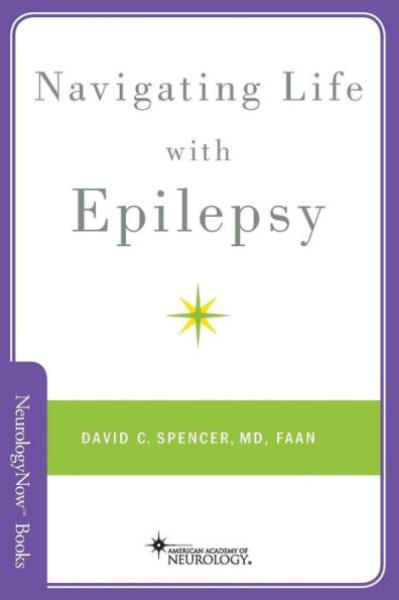Description
Navigating Life with Epilepsy provides accessible, comprehensive, and up-to-date information about epilepsy shared from the two decades of experience of epileptologist David Spencer, MD, FAAN. This book guides the reader through the initial diagnosis, offers explanations on current approaches to diagnostic testing, medications, treatment options, and life management for the patient, their family, and their caregiver. Patient's stories are peppered throughout to illustrate that you are not alone: like you, they must navigate the myriad psychosocial challenges associated with epilepsy, including everyday concerns like driving, work, and relationships.
Navigating Life with Epilepsy is a perfect resource for both patients with epilepsy and the family members and friends who care for them.
"Navigating Life with Epilepsy aims to provide clear and reliable information about epilepsy, including "what" (definition), "how" (pathophysiology), "who" (epidemiology), and "why" (etiology). The volume guides the reader through current approaches to diagnosis (including a review of diagnostic tests) and treatment, and shares patient experiences and advice on navigating the myriad psychosocial challenges associated with epilepsy. Epilepsy is a heterogeneous disorder with many causes and a wide spectrum of severity. This text will focus on issues relevant to adolescents and adults with epilepsy; there are many guides for parents of children with epilepsy and issues specific to younger children are beyond the scope of this book. The focus is on translation of current medical knowledge to the lay reader. However, because epilepsy can have profound psychosocial consequences, the book aims to extend beyond the bounds of a medical handbook to include discussion of issues that are of high priority to patients, including those surrounding, driving, work, and relationships"--
As an epilepsy specialist, this book impressed; as a patient, it will impress greatly. It is accessible yet comprehensive. Practitioners and persons with epilepsy will appreciate having a book that explains, in more detail than a typical office visit, so much about epilepsy- from the basic physiology, syndromes, diagnosis, treatment and life management. Treatment decisions and options deserve, and get, several chapters: treatment is complicated, ranging from diets, to medication, to surgical interventions; all have quality of life as the desired outcome. Patients and loved ones will appreciate the tips on what may be in store at various stages, including information about first aid and preparing for clinic visits. Readable, informative, from an acknowledged expert: a winning combination and an easy recommendation. --Robert A. Gross MD, PhD, FANA, FAAN, Professor of Neurology and of Pharmacology and Physiology, University of Rochester Medical Center, Editor-in-Chief, Neurology Journals
The book Navigating Life with Epilepsy by Dr. David Spencer is a practical advisor for people to epilepsy. In clear, non-medical language it explains basic medical facts about seizures, tests and treatments available. It explains that treatment is always a team approach and also includes controversies. With the help of patient stories medical facts are nicely illustrated. It informs about women's issues, memory problems with epilepsy, alternative treatment methods and much more. It is helpful for the day-to-day life with epilepsy and discusses stigma that people with epilepsy unfortunately still face. Books like this help to address the still lingering stigma, for which it is our society's responsibility to erase. --Barbara C. Jobst, MD, Dr. med, FAAN; Professor of Neurology; Geisel School of Medicine at Dartmouth; Director Dartmouth-Hitchcock Epilepsy Center; Section Chief, Department of Neurology; Hanover, NH
Product Details
- Oxford University Press, Brand
- Oct 3, 2016 Pub Date:
- 0199358958 ISBN-10:
- 9780199358953 ISBN-13:
- 312 Pages
- 8.2 in * 5.4 in * 0.7 in Dimensions:
- 1 lb Weight:




